Do cats suffer from dementia too? Yes, they do. It’s called Cognitive Dysfunction Syndrome (CDS), and it’s becoming more common in our feline friends.
Signs of CDS include changes in behavior, like disorientation, sleeplessness, altered sleep patterns, reduced fitness levels, and problems learning new information. If you’re a cat owner, it’s essential to know the signs of dementia so you can take steps to keep your kitty healthy.
In this blog post, we’ll look at what dementia is in cats and how it affects them. We’ll also discuss potential causes of dementia in cats and medications that can help manage the condition.
Plus, we’ll explore ways to prevent or delay dementia by providing your cat with a stimulating environment that promotes mental stability and wellbeing. If you want to know more about Can Cats Have Dementia?
We’ll give you all the details you need to provide your kitty with the best care possible.
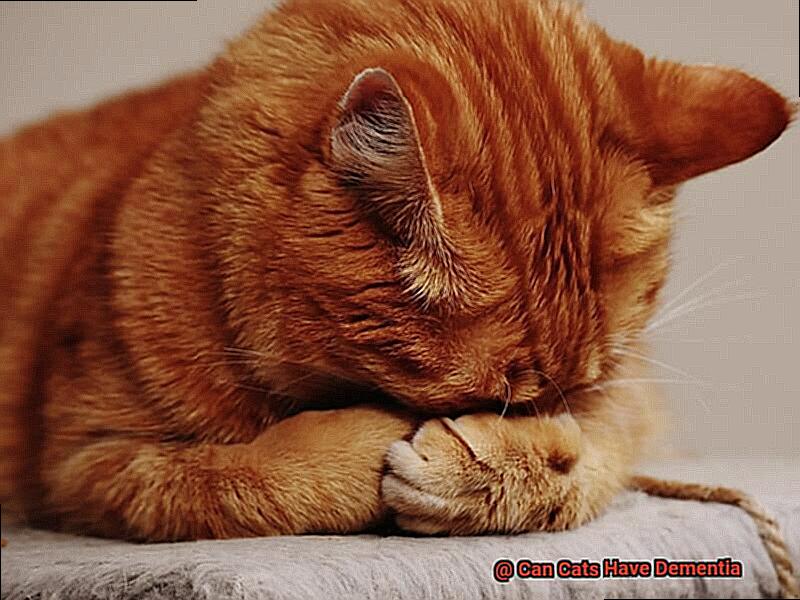
Symptoms of Feline Cognitive Dysfunction
Feline Cognitive Dysfunction (FCD) is a degenerative disorder that can have a profound impact on your cat’s quality of life.
If you suspect your beloved pet is suffering from FCD, it is important to know the signs and symptoms. Your cat may become more irritable or vocal than usual, or may be more isolated.
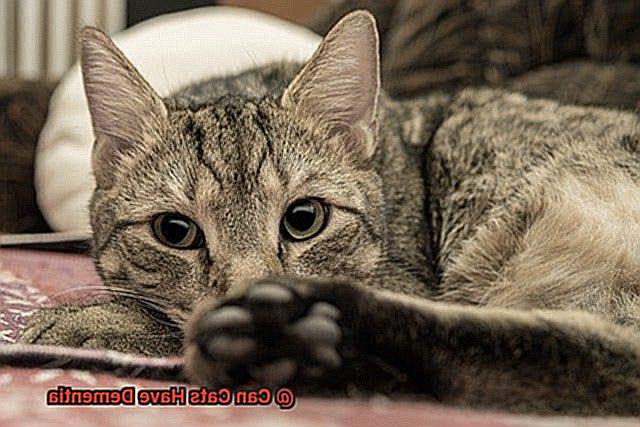
Changes in appetite or sleep patterns are also common. Additionally, cats with FCD often show a decline in physical activity such as playfulness, investigating, and grooming.
They may also avoid affectionate behaviors like purring or asking for petting. It is also important to note that cats with FCD may suffer from inflammation in the brain or mobility problems.
Though there is no cure for FCD, early detection and treatment can make a huge difference in your cat’s quality of life.
Causes of Feline Cognitive Dysfunction
Feline Cognitive Dysfunction (FCD) is a progressive and degenerative syndrome that can have a significant impact on your cat’s health, mobility, and well-being.
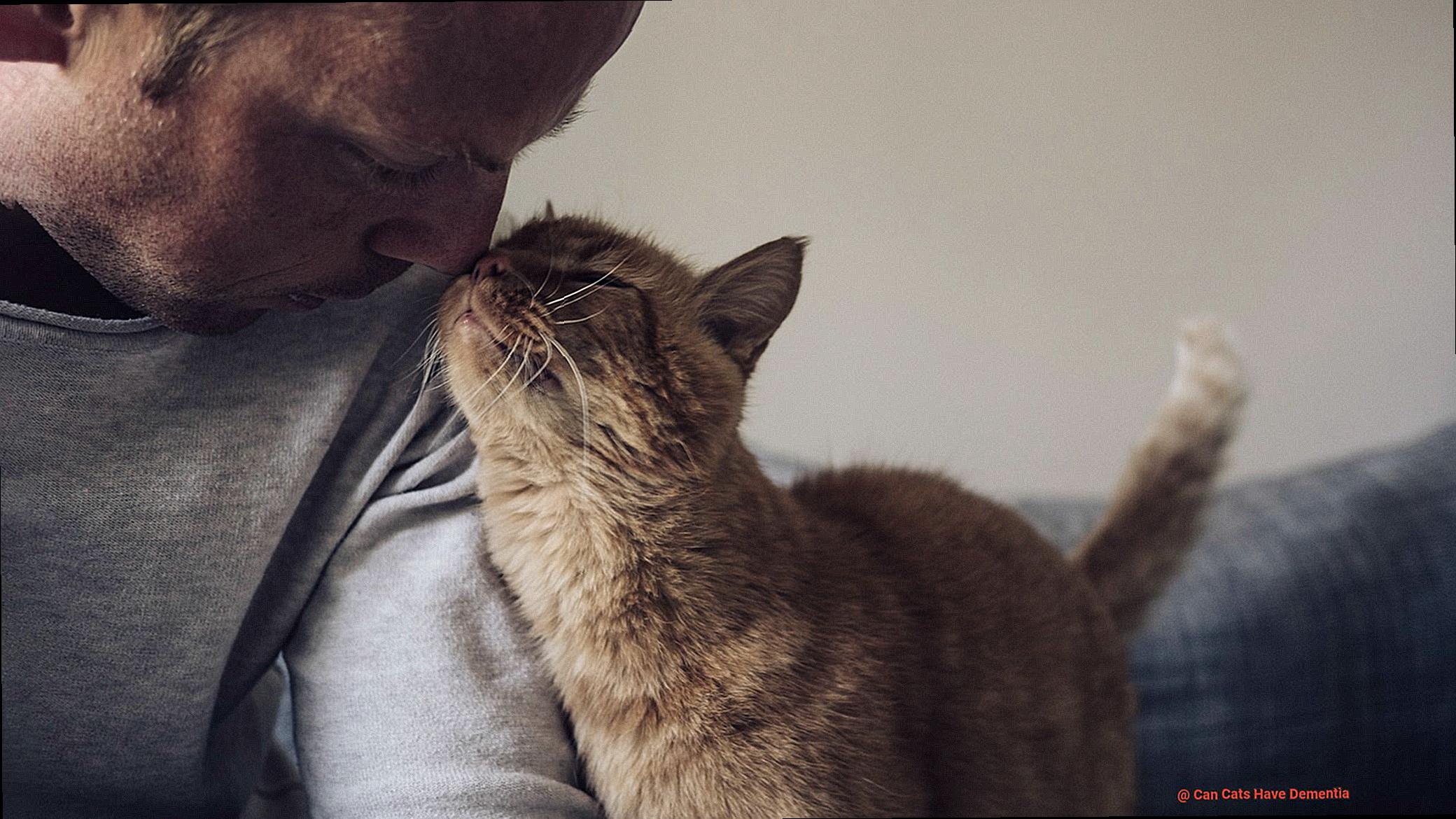
To ensure your furry friend has a happy and healthy retirement, it’s essential to understand the causes of FCD. Age is one of the most common causes of FCD, with cats as young as ten years old being susceptible to cognitive decline.
By age 15, around half of cats will have already begun to show signs of cognitive impairment. Beta-amyloid protein buildup in the brain is another known cause of FCD.
As cats age, this protein can clog up their neurons and impede communication between nerve cells, resulting in memory loss and behavioral changes. In addition, cardiovascular disease, genetic predisposition, and environmental factors like overcrowding or lack of exercise can all contribute to FCD.
Early detection and treatment are key when it comes to managing Feline Cognitive Dysfunction – so keep an eye out for symptoms in your cat.
Diagnosing Feline Cognitive Dysfunction
Diagnosing Feline Cognitive Dysfunction (FCD) can be a tricky process.
Unfortunately, there is no single test that can definitively diagnose dementia in cats. Instead, veterinarians must rely on a combination of factors to determine if their patients are suffering from FCD.
Age is often a key factor in diagnosing FCD; typically, older cats are more prone to this degenerative disorder. In addition, veterinarians will look for behavioral changes in cats to distinguish between normal aging habits and cognitive decline.
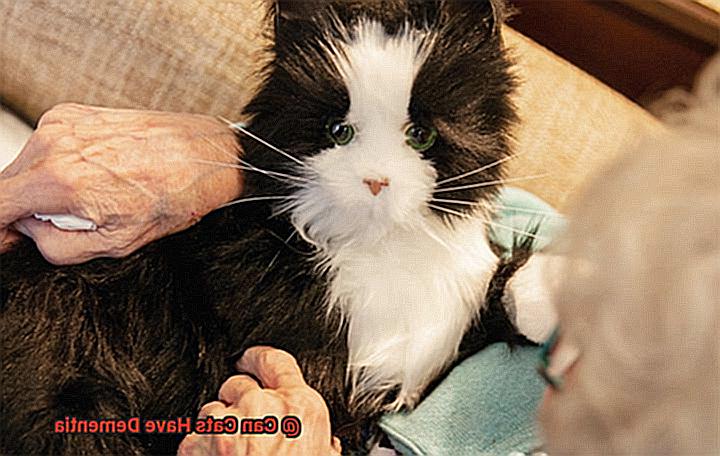
Overall health is also taken into account when diagnosing FCD. Any underlying conditions that may be causing a cat’s cognitive decline should be investigated.
Various tests such as blood work, urinalysis, and imaging may be used to rule out other potential health issues that could be contributing to a cat’s cognitive decline and help make an accurate diagnosis.
Treatment Options for Cats with Dementia
Dealing with dementia in cats can be a heartbreaking experience for any pet owner, but there are ways to manage the condition and improve the cat’s quality of life.
Although there is no known cure for feline cognitive dysfunction, there are several treatment options available. Environmental enrichment is one of the most effective treatments.
This requires making changes to the cat’s living environment that will provide mental stimulation and maintain cognitive function. This could include introducing new toys and games to play, setting up puzzles for the cat to solve, and creating safe and comfortable spaces for the cat to explore.

Medication can also be beneficial in managing symptoms and slowing dementia progression. Cholinesterase inhibitors help maintain brain function, while anti-anxiety medications can reduce stress levels in affected cats.
Additionally, dietary changes such as a diet high in antioxidants and essential fatty acids may help improve brain function and slow disease progression. Regular veterinary checkups are also key in managing dementia in cats.
How to Cope with a Cat’s Dementia Progression
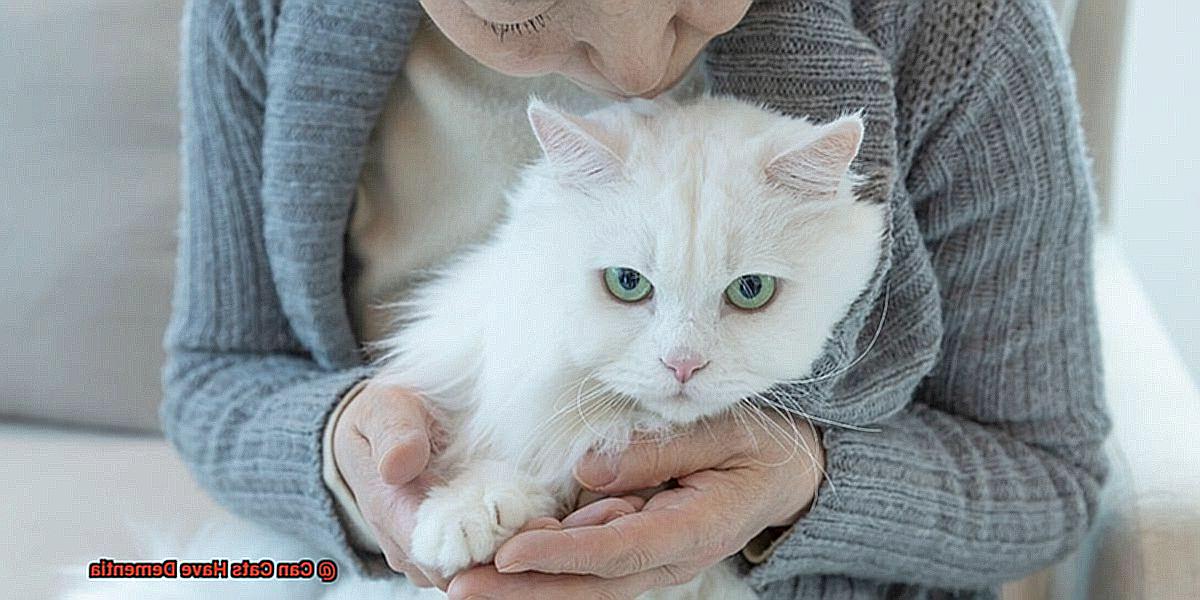
Caring for a beloved pet with dementia can be difficult, but there are ways to cope with their decline and make their remaining years as pleasant as possible. Here are five tips to help you cope with your cat’s dementia progression, from establishing routines to providing mental stimulation.
Establishing Routines
Creating a consistent routine for your cat can help reduce anxiety and confusion. Stick to regular feeding, playing, and sleeping times and consider making environmental modifications such as ramps or reducing clutter in the home.
Mental Stimulation
Offering mental stimulation like interactive toys and puzzle feeders can help slow cognitive decline and keep your cat engaged and mentally stimulated.
Medication
There are medications available that can improve cognitive function and reduce anxiety in cats with dementia; however, these should only be prescribed by a veterinarian under their guidance and supervision.
Safety First
To avoid accidents such as falling over or getting stuck in tight places, keep sharp objects out of reach of your cat with dementia and provide multiple litter boxes around the house that you clean regularly.
Self-Care
Caring for a cat with dementia can be emotionally draining, so make sure to take breaks, seek support from loved ones, and consider speaking with a therapist or counselor if needed. Remember that you’re not alone in this experience, and there are resources available to help both you and your furry companion.
Does My Cat Have Dementia? Quiz
Our quiz can help you determine if your furry friend is showing any potential signs.
Gather valuable insight into whether your cat’s behavior, eating habits, and overall wellbeing are affected by answering a few simple questions. Use the questionnaire as a detective instrument to track your cat more closely.
Questions such as whether your cat remembers previous learned habits or gets stuck in corners or looks disoriented in familiar locations will be asked. You’ll also be asked about its appetite and if it is less interested in food.
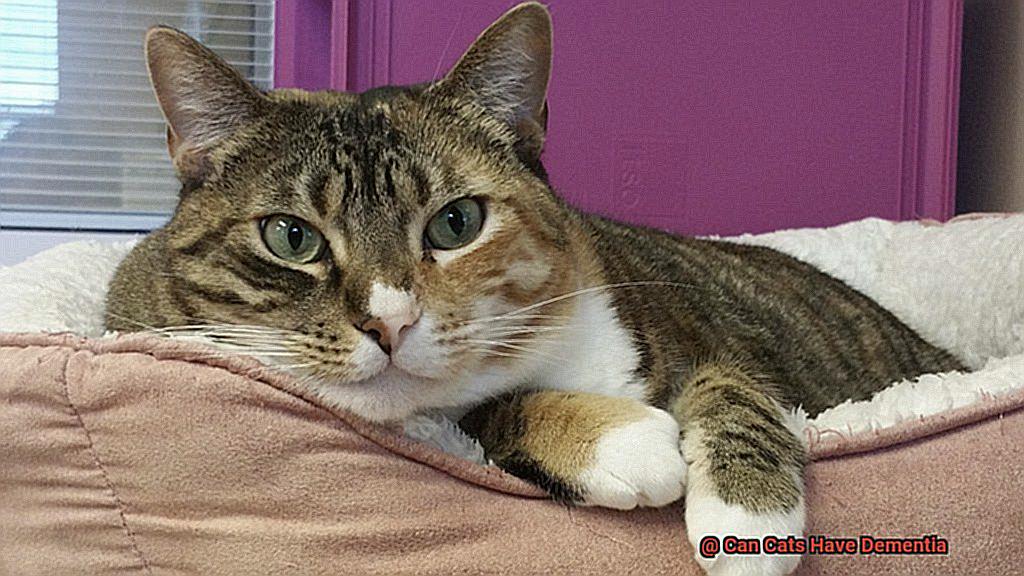
Although the questionnaire isn’t a substitute for a licensed veterinary diagnosis, it does provide invaluable information about potential problems that may require further investigation.
Are Cats with Dementia in Pain?
Caring for a cat with dementia can be a difficult experience for pet owners, as it’s often impossible to tell whether our beloved fur friends are in pain or distress.
The answer to this question isn’t always straightforward, as dementia itself is not typically painful, but it can lead to behaviours that may cause anxiety or discomfort. In addition, cats with dementia may be more prone to physical health issues that can cause pain or discomfort.
Working closely with a veterinarian to develop a comprehensive treatment program is essential, since this may involve ongoing physical monitoring, behavioral modifications and medication management to reduce pain and improve quality of life.
Gp-Rvz0hinc” >
How Long Will a Cat Live with Dementia?
It is heartbreaking to witness our beloved cats suffer from dementia, but with the right care plan, their quality of life can be greatly improved.
Veterinary experts agree that the lifespan of cats with dementia may vary greatly depending on various factors such as age, genetics, and the severity of the underlying cause. Early intervention and proper management are key in prolonging a cat’s life and improving their quality of life.
Additionally, working with a veterinary specialist to create a customised care plan with medication administration, physical examination, and changes to their environment can all make a huge difference in improving their quality of life.
Also Read: Elderly Cat Yowling? – 21Cats.org
Conclusion
Cats can suffer from dementia, known as Cognitive Dysfunction Syndrome (CDS).
Symptoms such as disorientation, altered sleep habits, reduced fitness levels and difficulties learning new information are all typical signs of CDS. As a cat owner, it’s essential to be aware of the signs of dementia so that you can take steps to maintain your kitty’s health.
FCD is often caused by age and beta-amyloid protein buildup in the brain. To diagnose FCD, veterinarians must look at a combination of risk factors including age and behavioral changes.
Unfortunately, there is no cure for FCD yet, but medications and vitamins can help control symptoms and slow disease progression. Caring for a cat with dementia can be emotionally taxing; therefore it’s important to take breaks, seek help from loved ones and consider consulting with a therapist or counselor if necessary.







